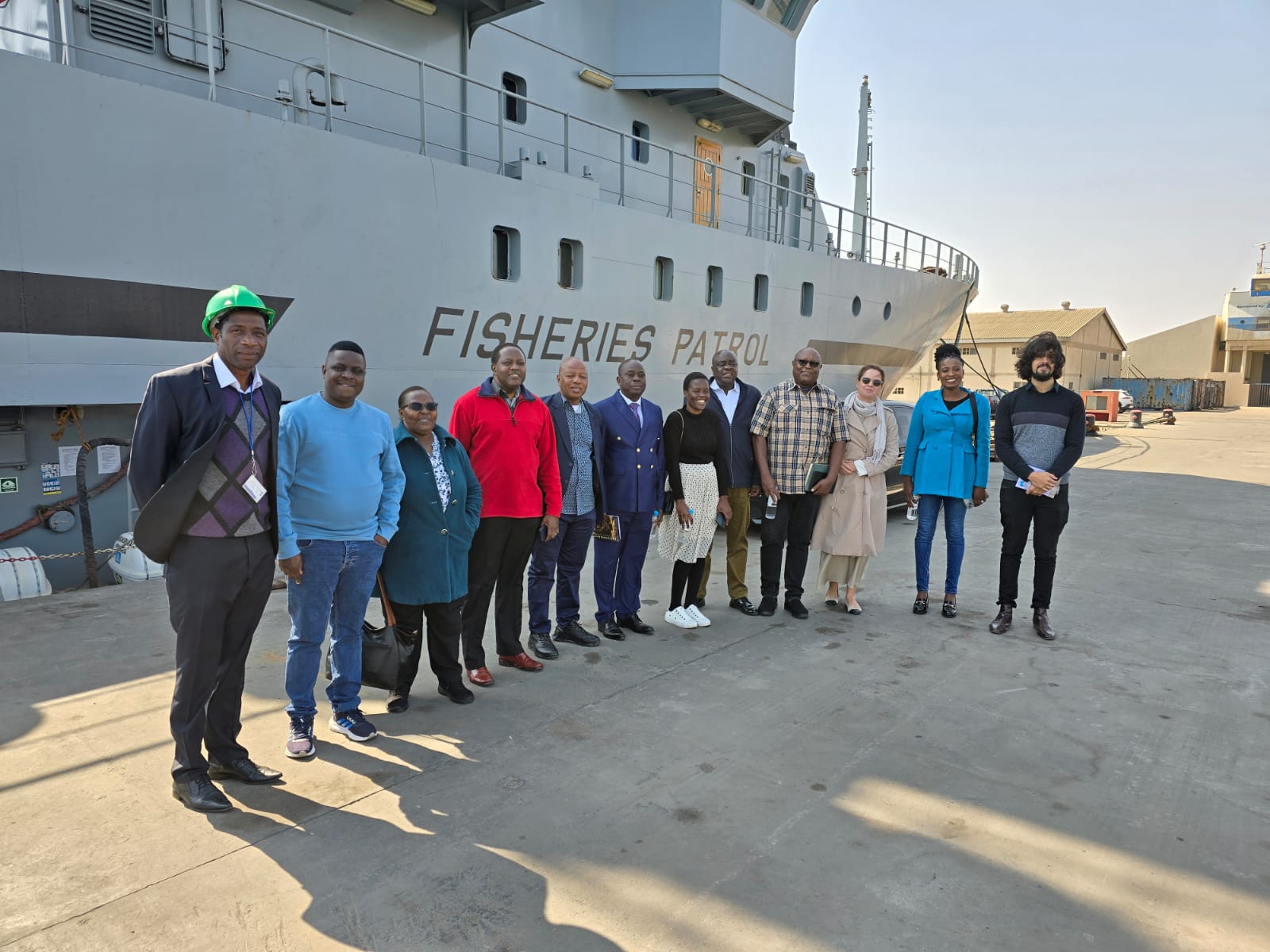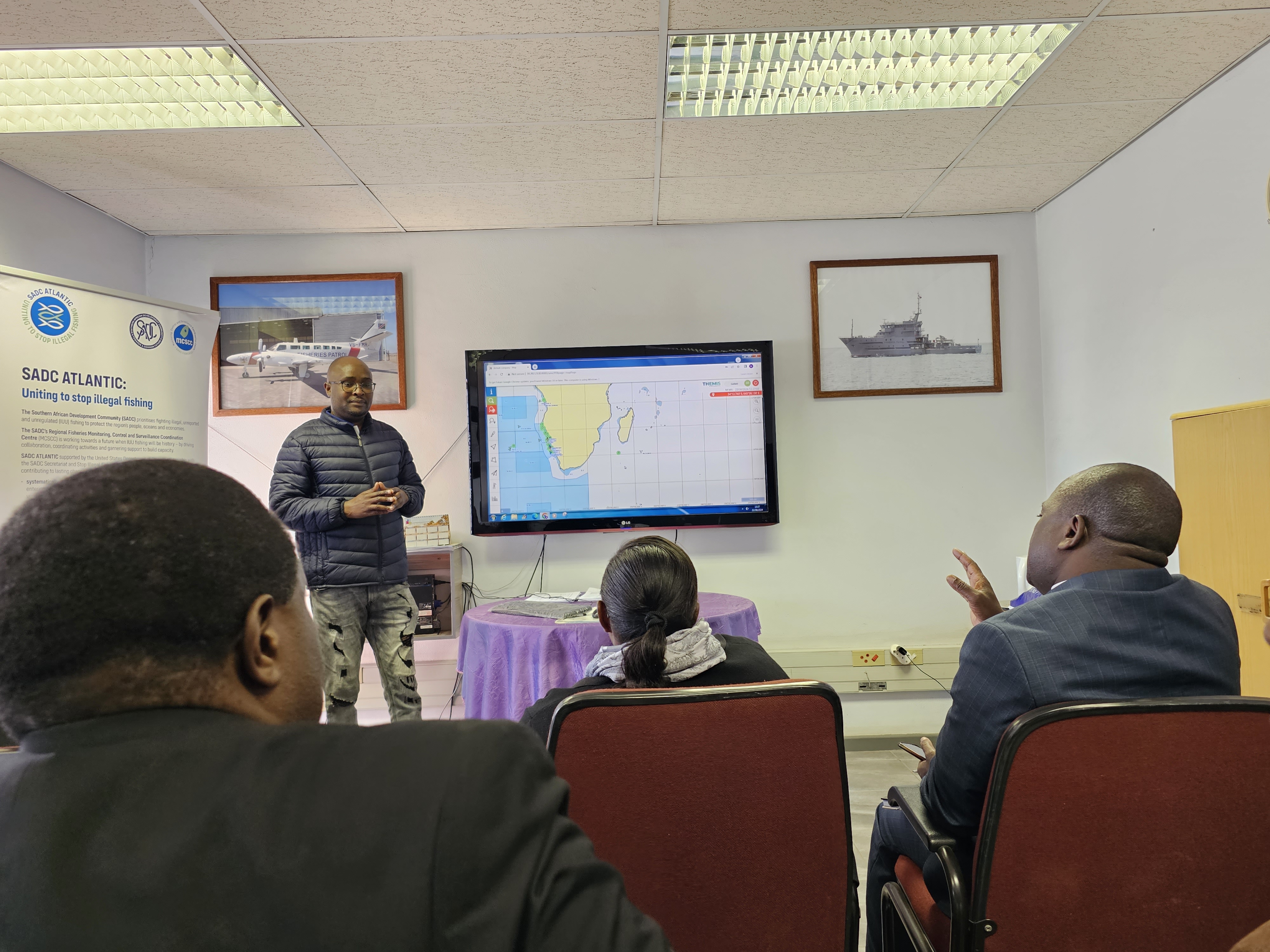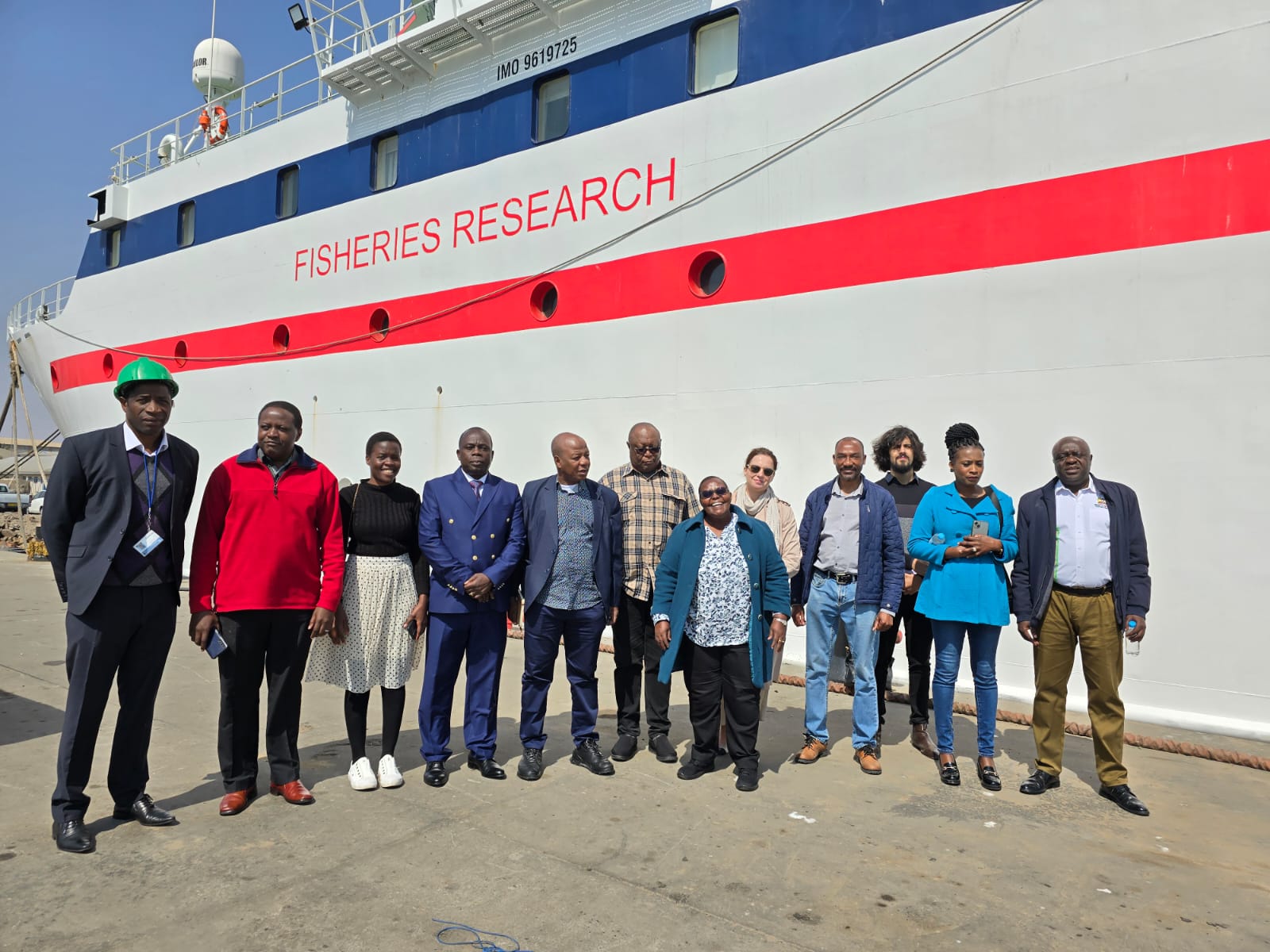UNODC Eastern Africa News and Stories
You are here: Home / News
Strengthening Kenya's Fight Against Fisheries Crimes: Lessons from Namibia
 Illegal activities in the fisheries sector pose a significant threat to small-scale fishermen, marine ecosystems, and the sustainability of fish populations. In communities that depend heavily on fishing for their livelihoods, the impact of these activities is devastating. These illegal practices deplete fish stocks, disrupt ecosystems, and create unfair competition for small-scale fishermen who follow legal quotas and conservation measures. As a result, many communities face economic hardship and increased poverty.
Illegal activities in the fisheries sector pose a significant threat to small-scale fishermen, marine ecosystems, and the sustainability of fish populations. In communities that depend heavily on fishing for their livelihoods, the impact of these activities is devastating. These illegal practices deplete fish stocks, disrupt ecosystems, and create unfair competition for small-scale fishermen who follow legal quotas and conservation measures. As a result, many communities face economic hardship and increased poverty.
In Kenya, the growing demand for marine resources, especially with the development of a new fishing port in Shimoni and the potential licensing of foreign vessels in its Exclusive Economic Zone (EEZ), has amplified the urgency to tackle crimes in the fisheries sector. To combat these challenges, the United Nations Office on Drugs and Crime (UNODC), through its FishNET II project funded by the Norwegian Agency for Development and Cooperation (Norad), is partnering with the Kenya Fisheries Service (KeFS) to enhance their capacity to address these illegal activities.
A key identified component of this initiative involves strengthening of the fisheries enforcement agencies. In this context, the role of observers was identified to have great importance in the Kenyan context as they are responsible for ensuring that fishing vessels comply with the law and provide critical oversight, verifying catch sizes, species caught, and fishing methods used, all essential for effective fisheries management an ensuring that organized crime does not find its way to this highly lucrative sector. However, building a robust observer program requires technical expertise and institutional support.
To address this, a team of senior directors from Kenya Fisheries Service (KeFS) embarked on a study tour to Namibia's Fisheries Observers Agency (FOA) in Walvis Bay. Namibia’s fishing industry is one of the country’s largest contributors to its gross domestic product (GDP), and FOA is known as a benchmarking institution for its large number of professionally trained observers. FOA not only monitors fishing activities but also generates revenue through levy fees on fish landings. This financial model allows FOA to operate through Namibia’s entire Exclusive Economic Zone (EEZ).
 During the study tour, the Kenyan delegation held meetings with FOA and visited key institutions, including the Namibian Ports Authority (NAMPORT), the Namibian Maritime and Fisheries Institute (NAMFI), and the Ministry of Fisheries and Maritime Resources (MFMR). They also boarded patrol and research vessels. which play a crucial role in Namibia's fight against illegal activities in the fisheries sector.
During the study tour, the Kenyan delegation held meetings with FOA and visited key institutions, including the Namibian Ports Authority (NAMPORT), the Namibian Maritime and Fisheries Institute (NAMFI), and the Ministry of Fisheries and Maritime Resources (MFMR). They also boarded patrol and research vessels. which play a crucial role in Namibia's fight against illegal activities in the fisheries sector.
 The visit was highly productive, with both KeFS and FOA identifying key areas for collaboration. These include training and development, exchange programs, and expertise sharing. The ultimate goal of this visit is to enhance KeFS’ Observer Program, building on Namibia’s successful model to better detect, prevent, and address illegal activities in Kenya’s waters. As a result, UNODC has a more targeted approach in supporting KeFS in this area. Discussions on support in the implementation of key recommendations are ongoing.
The visit was highly productive, with both KeFS and FOA identifying key areas for collaboration. These include training and development, exchange programs, and expertise sharing. The ultimate goal of this visit is to enhance KeFS’ Observer Program, building on Namibia’s successful model to better detect, prevent, and address illegal activities in Kenya’s waters. As a result, UNODC has a more targeted approach in supporting KeFS in this area. Discussions on support in the implementation of key recommendations are ongoing.
This collaboration marks a significant step toward inter-regional cooperation, securing Kenya’s marine resources, and empowering its fisheries sector to thrive in a competitive and sustainable environment.
For more information, please contact:
Mr. Giovanni Broussard (giovanni.broussard@un.org)
UNODC Africa Programme Coordinator
Environment Programme
United Nations Office on Drugs and Crime
Click here to visit the UNODC Environment Programme website.